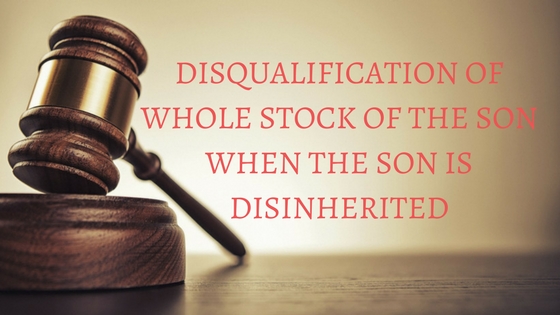Aapka Consultant Judgment Series- In this series, we are providing case analysis of Landmark Judgments of Hon’ble Supreme Court of India.
Vellikannu Vs. R. Singaperumal and Anr.
AIR2005SC2587
Hon’ble Judges/Coram: Ashok Bhan and A.K. Mathur, JJ.
Decided On: May 6th, 2005
FACTS:-
The scheduled properties were the self-acquired properties of late Ramasami Konar and the first defendant was the only son of Ramasami Konar and the plaintiff was the wife of the first defendant. On October 10th, 1972, the first defendant murdered his father and was convicted under Section 302 IPC for life imprisonment. Since the first defendant murdered his father, he was not entitled to succeed to the estate of his deceased father and the plaintiff claimed that she was alone entitled to all the properties left by the deceased.
ISSUES:-
- Whether, when the sole male survivor had incurred the disqualification can he still claim the property by virtue of Mitakshara School of Hindu Law?
- Whether his wife who succeeds through the husband can succeed to the property?
JUDGMENT:-
As per Section 6 of the Hindu Succession Act, 1956, if a male Hindu dies after commencement of the Act, an interest in Mitakshara coparcenary property shall devolve by survivorship upon the surviving members of the coparcenary and not in accordance with the Act. The son acquires by birth or adoption a vested interest in all coparcenary property as a member of a joint family. The ownership of coparcenary is in the whole body of coparceners. The share of a member of coparceners may fluctuate from time to time but his right by way of survivorship in coparcenary property in Mitakshara law is a settled proposition.
The Court answered above mentioned issues in the negative. As was held in Kenchava Kom Sanyellappa Hosmani and Anr. v. Girimallappa Channappa Somasagar (AIR1924PC209), the murdered should be treated as non-existent and not as one who forms the stock for a fresh line of descent. This principle totally disinherits the son who has murdered his father.
This position of law was incorporated by way of Section 25 of the Hindu Succession Act, 1956. Section 27 of the Hindu Succession Act makes it clear that if any person is disqualified from inheriting the property under the Act, it shall be deemed as if such person had died before the intestate. That means he will be deemed to have predeceased him. A person who is guilty of committing the murder cannot be treated to have any relationship whatsoever with deceased’s estate. Once the son is totally disinherited then his whole stock stands disinherited. The First Defendant is totally disqualified by virtue of Sections 25 and 27 of the Hindu Succession Act and as such the wife can have no better claim in the property of the deceased.
HELD:-
A person who is guilty of committing the murder cannot be treated to have any relationship whatsoever with deceased’s estate and when the son cannot succeed then the wife who succeeds to the property through the husband cannot also lay a claim to the property of her father-in-law.
To Get Legal Opinion from Advocates/ Legal Experts, Please click here
To Get Legal Opinion from Retired Hon’ble Judges, Please click here












